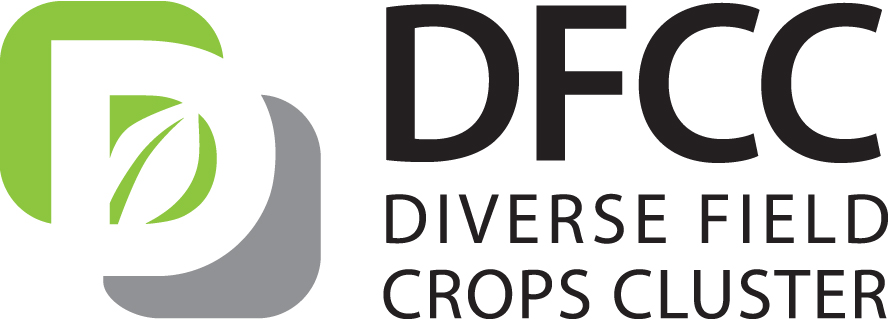Adding mustard to the mix: researchers look at adding special crops to conventional crop rotation systems.
Diversified crop rotations are known to have substantial benefits for producers and for the environment. The practice helps break disease and pest cycles and insulates producers from the volatility of commodity price cycles. But special crops like those in the Diverse Field Crops Cluster (DFCC) (mustard, canary seed, camelina, flax, hemp, quinoa and sunflower) have seen limited use in existing cereal-dominated rotation systems in favour of oilseed and pulse crops. Researchers Manjula Bandara (MCB Agric – Research Consulting [formerly of Alberta Agriculture & Forestry] and Mervin St. Luce of Agriculture and Agri-Food Canada (AAFC) in Swift Current are leading a team working with Mustard 21 Canada Inc. (M21) of the DFCC and to address the knowledge gaps that make producers hesitant to use special crops in their rotations.
“We aim to generate information on soil fertility management, productivity of the cropping system, economics and overall environmental sustainability. We certainly want our cropping systems to be sustainable,” St. Luce says.
This research activity is composed of three inter-connected study components that includes a controlled environment and carbon input study, a 5-year crop rotation study and a nitrogen response study.
In the controlled environment study, crop residues (stubble and roots) from the various crops are collected in the Prairies and used to observe how they decompose over time. This study will provide information on the relative amount of plant carbon that may be emitted as carbon dioxide and what remains in the soil, how nitrogen availability is affected and how it will affect the soil microbes and soil organic matter over time. Overall, this will aid in assessing the environmental footprint of selected special crops in different integrated cropping rotations. These studies are being conducted by AAFC in Swift Current, SK and Quebec City, QC.
In the complex crop rotation study, DFCC special crops (three mustard varieties - carinata, oriental and yellow), canary seed, camelina, sunflower, flax, quinoa) are included in one or more years of the 5-year study to determine how the special crops affect performance of subsequent cereal, oilseed or pulse crops. Crop growth, phenology, productivity and yield, weed biomass, and selected soil physical and chemical properties are being evaluated.
For example, Bandara explains that mustard plants synthesize and release compounds, such as erucic acid and glucosinolates, which can alter the soil microbial community and may affect subsequent crops grown in the rotation. Bandara and St. Luce’s research is focusing on measuring this impact, in collaboration with Prof. Diane Knight and Piumi Gallage (Ph.D. candidate) at the University of Saskatchewan.
Another part of the second study is to investigate the effect of glucosinolates and erucic acid on nitrogen fixation by pulse crops. Pulses play key roles in nitrogen cycling — working with soil bacteria to fix nitrogen from the atmosphere— and are used in this study to investigate the full impact of glucosinolates and erucic acid on nitrogen-fixing bacteria. All together, 19 rotations will be analyzed across five sites in Saskatchewan (SK) and Alberta (AB) using a single research protocol.
The third study aims to determine the optimum nitrogen requirements of oriental, yellow and industrial mustard (as well as camelina and sunflower) across four distinct locations in SK and AB.
“We want to compare the existing systems with the new proposed systems in terms of crop and soil productivity and economic sustainability. Will these be positive or negative or neutral?” Bandara says. “If it produces a negative impact then the mustard producers will know that they can’t add it into the rotation because the whole system would be affected.”
“We are looking at how we can include some of these special crops in the diversified systems and how they will perform in those systems, and how the entire system will perform,” says St. Luce.
With this team’s research results, producers will have valuable information to show how adding special crops like mustard, camelina, flax, quinoa, canary seed and sunflower to their rotations could increase the quality of the soil – and ultimately, the profitability of their operations.
Written by Erin Matthews
—————————————-
This DFCC activity is led by Mustard 21 Canada Inc with funding from Agriculture and Agri-Food Canada’s Canadian Agriculture Partnership program, Mustard 21 Canada Inc, Saskatchewan Mustard Development Commission, Canadian Mustard Association, Government of Saskatchewan, and Nuseed Canada Inc.
The Diverse Field Crops Cluster (DFCC) is a unique alliance of industry partners: Canadian Hemp Trade Alliance, Canary Seed Development Commission of Saskatchewan, Saskatchewan Flax Development Commission, Smart Earth Camelina Corporation, Manitoba Crop Alliance, Mustard 21 Canada Inc, and Northern Quinoa Production Corporation. DFCC aligns industry and research stakeholders to seize market opportunities and accelerate the acreage and market returns of special crops. Ag-West Bio leads this five-year research cluster which is funded by Agriculture and Agri-Food Canada’s Canadian Agricultural Partnership program and industry partners.

